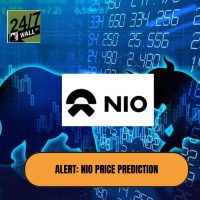
On Monday, May 1st, the NFT platform Blur introduced its new lending protocol—Blend. The protocol will allow investors that would otherwise be priced out to enter the non-fungible token market by placing smaller down payments when wishing to acquire blue-chip assets and has been likened to the way houses are often purchased.
Blur Unveils Its New NFT Lending Protocol
This Monday, Blur unveiled its new NFT lending protocol—Blend. The peer-to-peer protocol connects lenders and borrowers and enables them to specify the terms such as the interest rate, and acceptable collateral. The loans offered through Blend are perpetual, have a fixed rate, and enable the borrower to pay the debt at any point.
Lenders can also exit a position by kickstarting a “Duch auction” which ends either with a new lender stepping in, or, if that does not happen, with the borrower getting liquidated. Paradigm’s Dan Robinson—Blur’s key partner when it comes to the protocol—described Blend as “a simple but flexible protocol” and highlighted its ability to accept any collateral type.
In its announcement, Blur likened its new protocol to acquiring a house using a down payment and paying the rest through a mortgage. According to the marketplace, Blend will significantly help with liquidity and “will jump-start the next stage of growth for the NFT market.”
Blur’s Rapid Rise to Prominence
Blur initially came to the scene in late 2022 and immediately positioned itself as an NFT marketplace built for professional investors. The marketplace, however, skyrocketed in popularity in February of this year after launching its long-awaited token—BLUR. The launch was aimed at helping the marketplace’s users benefit from the platform’s success through community ownership and at boosting the traders’ ability to participate in its governance protocol.
By the beginning of March, Blur garnered much popularity and even managed to overtake OpenSea in trading volume. The data was, however, somewhat controversial as, at the time, about 42% of all transactions on the platform were allegedly connected to wash trading. Blur’s rapid rise is also noteworthy for coinciding with a broader resurgence for non-fungible tokens.
Already in late 2022, NFT aggregators—platforms aimed at enabling easy access to the many non-fungible token marketplaces spread across multiple blockchains—rose to prominence reaching a trading volume of nearly $2 billion. The interest in NFTs was also reignited by the emergence and proliferation of Bitcoin Ordinals.
This article originally appeared on The Tokenist
Credit Card Companies Are Doing Something Nuts
Credit card companies are at war. The biggest issuers are handing out free rewards and benefits to win the best customers.
It’s possible to find cards paying unlimited 1.5%, 2%, and even more today. That’s free money for qualified borrowers, and the type of thing that would be crazy to pass up. Those rewards can add up to thousands of dollars every year in free money, and include other benefits as well.
We’ve assembled some of the best credit cards for users today. Don’t miss these offers because they won’t be this good forever.
Flywheel Publishing has partnered with CardRatings for our coverage of credit card products. Flywheel Publishing and CardRatings may receive a commission from card issuers.
Thank you for reading! Have some feedback for us?
Contact the 24/7 Wall St. editorial team.



